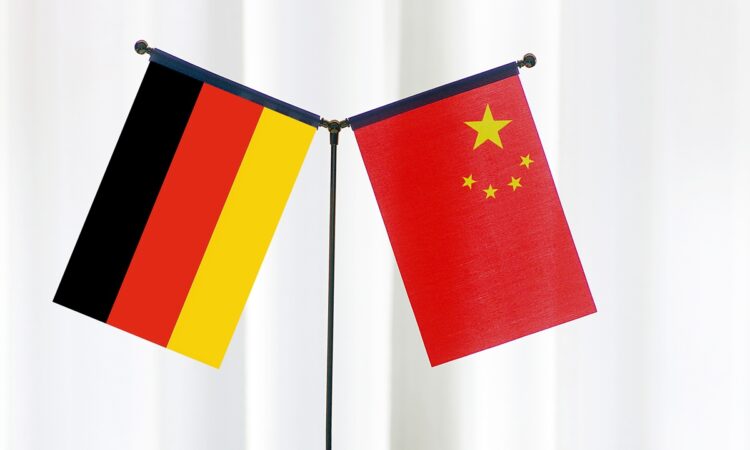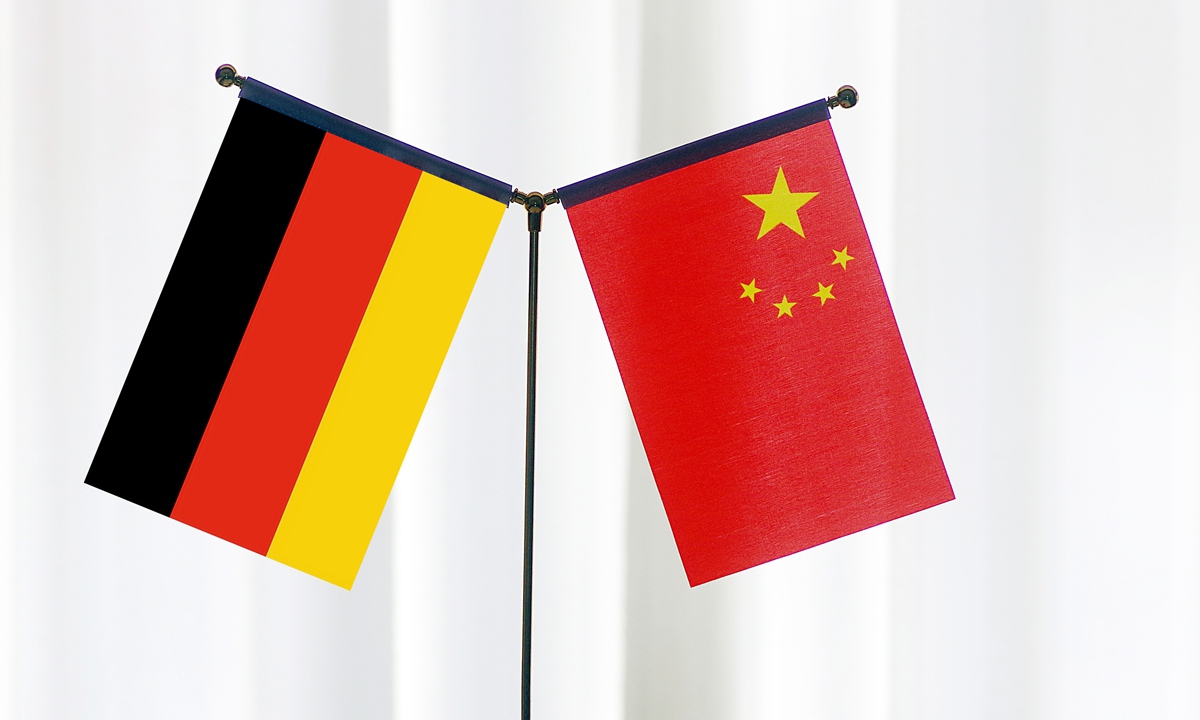

China Germany Photo:VCG
German Vice Chancellor and Economy Minister Robert Habeck will embark on a working visit to China this week, with plans to discuss topics including trade, climate protection, and energy policy with Chinese government officials, according to media reports on Monday.
The upcoming visit will mark Habeck’s first trip to China, and it comes amid escalating trade tensions between China and the European Union (EU), after the bloc announced an additional tariff of up to 38.1 percent on Chinese electric vehicles (EVs).
During his trip, Habeck will be accompanied by representatives from the German business community and lawmakers, with plans to meet political and business representatives in China. German media reports said that the two sides are expected to engage in “intense negotiations” during Habeck’s trip.
Habeck’s visit will undoubtedly focus on boosting mutual communication and understanding in the economic and trade sectors, an area of shared consensus between the two sides that holds significant importance, especially given the EU’s escalating crackdown on Chinese products, Cui Hongjian, a professor at the Academy of Regional and Global Governance with Beijing Foreign Studies University, told the Global Times on Monday.
“Given the intensifying trade frictions with the EU, the China-Germany strategic dialogue needs to send clearer signals to the world,” Cui said, adding that the visit is an opportunity for the German government to further clarify its stance and seek bilateral cooperation rather than confrontation.
The German Economy Ministry said Habeck will not be involved in the tariff negotiations directly but would push for fairer trade conditions during meetings with Chinese officials, Reuters reported on Saturday.
A German Economy Ministry spokesperson said the EU must find a solution that conforms with World Trade Organization (WTO) norms. After the EU tariff decision, Habeck said “there is now an opportunity to try and hopefully succeed in stopping” the threat of a spiraling tariff escalation, according to Reuters and Bloomberg reports.
Cui noted that both sides will inevitably discuss automotive tariff issues, due to the importance of China-Germany trade relations and shared economic interests.
“The two sides mutually benefit from cooperation in EVs and green industries, and Germany, as a pivotal leader of the EU, should play a more proactive role in preventing trade friction escalation,” Cui said.
China’s Ministry of Commerce (MOFCOM) announced on Monday that following domestic industry requests, it will launch an anti-dumping investigation into imported pork and pig by-products originating from the EU.
An official from MOFCOM said that China’s anti-dumping investigation has been initiated in line with WTO rules, noting that the investigation will be conducted according to the law, and will fully protect the rights of all interested parties before an objective and impartial ruling is made.
As Europe’s largest economy, Germany’s voice carries particular weight, and its leading car manufacturers have strongly opposed the EU tariff decision, calling it a protectionist move that will only harm the European auto industry.
According to data from Germany’s Federal Statistical Office on May 17, in the first quarter of 2024, Germany’s trade with China reached €60 billion ($64.23 billion), making China its second-largest trading partner.
In the same period, 25.9 percent of the EVs sold in Germany were imported from China, official data showed. During the first quarter, Germany’s top exports to China were motor vehicles and automotive parts, followed closely by machinery products.






